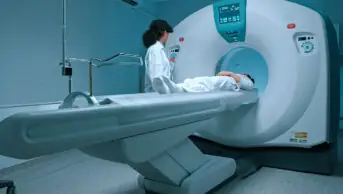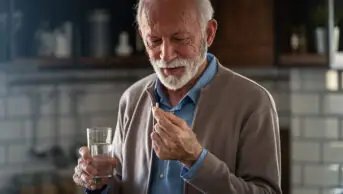
Shutterstock.com
Community pharmacists have the potential to help identify early signs of cancer in patients and refer them to specialists, according to research published in the International Journal of Pharmacy Practice
.
However, engagement is hampered by a lack of public awareness of pharmacist’s professional skills, the study results show.
“Despite recent awareness campaigns people still fail to recognise their cancer symptoms, they self-medicate and delay seeking help,” the University of Aberdeen researchers wrote.
“In this study, many of the participants attended community pharmacies to purchase medicines but did not interact with the pharmacist about their symptoms. Those who did interact with the pharmacist were referred and were subsequently diagnosed with cancer, confirming appropriateness.”
The authors added that there is “potential for more community pharmacist involvement in both advising on symptoms and referring on”.
“However, for this to happen patients need to make more use of pharmacists’ skills.” More research was needed before any interventions could be designed, they said.
The researchers based their conclusions on the results of face-to-face interviews, interpreted using a qualitative data analysis framework, with 25 patients who attended outpatient clinics at Aberdeen Royal Infirmary. All had been diagnosed in the previous 12 months with lung, colorectal, or gastro-oesophageal cancer. The interviews took up to 60 minutes.
They found that patients were widely unaware of risk factors and red-flag symptoms associated with cancer. Some participants did not attribute their symptoms to anything until they were diagnosed; the majority never thought they had cancer.
A few patients chose to visit a pharmacy before seeking help from their GP. While most did not speak to counter staff or the pharmacist, the three patients who did seek pharmacist advice were appropriately referred and were happy with the advice and treatment given.
“The main barrier to accessing pharmacy support was a lack of awareness that pharmacists were suitably skilled to respond appropriately to their symptoms,” the researchers concluded.


